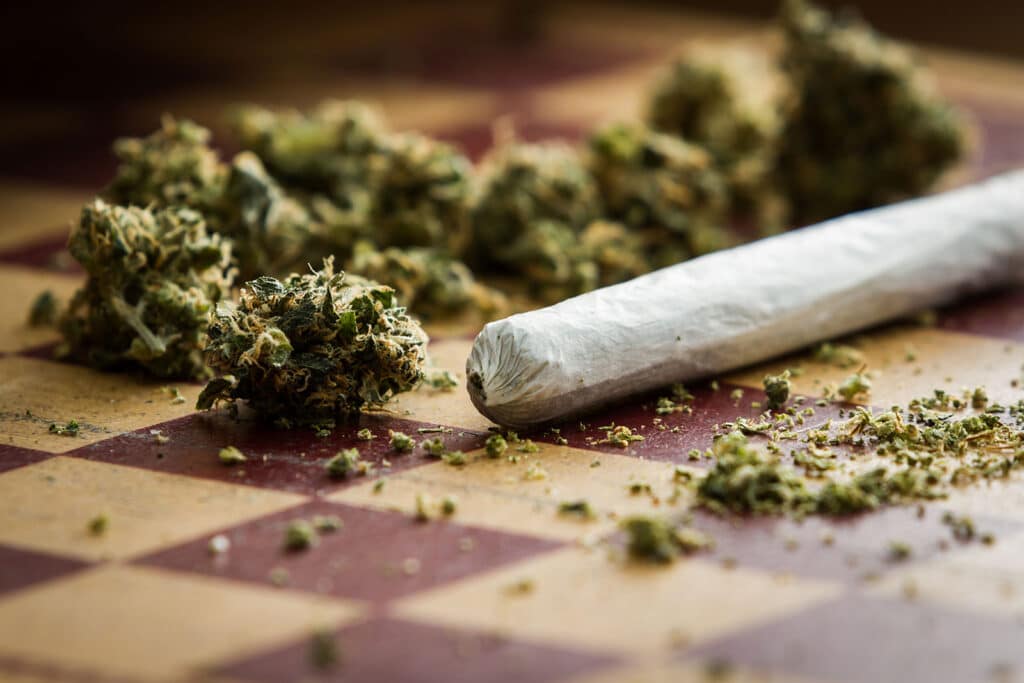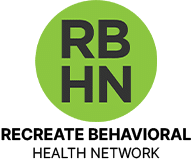Most people would agree that substance abuse is a chronic and pervasive problem in the U.S., and those who do are not exactly off base in that assertion. Multiple studies show that a large proportion of Americans are struggling with some form of addiction, one of which comes from the Substance Abuse and Mental Health Services Administration (SAMHSA). It revealed that an estimated 29.5 million people aged 12 or older had what constitutes an alcohol use disorder (AUD) in 2022. In the same year, a reported 27.2 million had a drug use disorder (DUD), and roughly 8 million had both an AUD and DUD. Sadly, it doesn’t end there; many people are battling a mental illness alongside addiction.
This phenomenon is what clinicians refer to as a co-occurring or dual diagnosis. According to data from the National Survey on Drug Use and Health, approximately 21.5 million adults in the U.S. have such a disorder. Something else worth noting as it relates to the struggles many Americans have when it comes to addiction and mental illness is that their struggles are seldom theirs and theirs alone. Often, members of the family have to witness what addiction has done to their loved ones, which sometimes leads to family issues like cases of domestic violence, failed marriages, broken promises, and much more. Addiction can significantly strain family relationships and disrupt the stability of the family unit. Sometimes, an individual’s struggles with substance abuse will lead to them dying prematurely, leaving their entire family to grieve.
This is why family therapy is an important component of addiction treatment. Family therapy can help to repair family relationships and improve family dynamics. It can also help the family system to better understand addiction and how to support their loved one in recovery. By addressing the family’s needs and working together as a unit, family therapy can help to create a more supportive and healthy environment for everyone involved.

Studies Show Nearly Half of All Americans Have a Family Member Struggling With Addiction
To appreciate how many American families have a family member struggling with substance abuse or addiction, we need only look at a Pew Research Center study. It revealed that 46% of U.S. adults report having a family member or close friend who is addicted to drugs, alcohol, or both. By the way, this is not the only study that has posted such unsettling findings. A separate 2021 study published by Gallup, a trusted and esteemed multinational analytics and advisory firm in Washington, D.C., found that roughly 32% of Americans say that substance abuse has caused trouble in their families, up 5% compared to the 27% who reported the same in 2019. Along with alcohol, commonly abused substances across the country include the following:
- Barbiturates
- Benzodiazepines
- Inhalants, such as cleaning liquid, nail polish remover, nitrous oxide, glues, and aerosol products
- Marijuana
- Prescription and street-level opioids
- Stimulants, such as amphetamines, cocaine, methamphetamine, and ecstasy
How Substance Abuse Affects the Mind and Body
Substance abuse can significantly impact an individual’s mind and body. And the impact can be severe and, in some cases, life-threatening. For example, excessive alcohol consumption can trigger cirrhosis of the liver, which can be fatal, and abruptly quitting alcohol can trigger hallucinations and delirium tremens, a severe withdrawal known to cause violent and life-threatening seizures. As far as drugs are concerned, let’s take a closer look at some of the commonly abused ones in the U.S. today.
Barbiturates
Often prescribed to treat anxiety, insomnia, muscle spasms, or seizures, barbiturates slow down the central nervous system (CNS) while simultaneously ramping up dopamine production in the brain, both of which can trigger a euphoric high. When someone abuses or misuses barbiturates, they run the risk of becoming addicted. Popular prescription barbiturates include Primidone, Pentobarbital, and Butalbital. Popular street-level variants of the drug include barbs, downers, Christmas trees, blue heavens, blues, pinks, rainbows, red devils, and yellow jackets. When someone suddenly stops taking barbiturates, they can experience sudden changes in body temperature, hallucinations, seizures, tremors, and many other withdrawal symptoms.
Benzodiazepines
Benzodiazepines, also known as benzos, are a class of depressant drugs that are highly addictive. Like barbiturates, they slow down the CNS and trigger a surge of dopamine in the brain. That combination elicits a euphoric high that can make it difficult for some people to give up the drug, which many physicians prescribe to treat anxiety, insomnia, seizures, alcohol withdrawal, and some cancer symptoms. Popular benzodiazepines include Xanax, Valium, Ativan, and Klonopin. Abrupt cessation of benzodiazepines can trigger the following withdrawal symptoms:
- Anxiety
- Chronic sweating
- Headaches
- Heart palpitations
- Muscle pain and seizures
- Nausea
- Panic attacks
- Tremors
Inhalants
Inhalants provide a near-immediate euphoric high that makes them attractive to many people. When someone inhales cleaning fluids, aerosols, nail polish remover, or another inhalant, it triggers an intense euphoric high by ramping up dopamine levels in the brain. At the same time, it makes it difficult for air to get into their lungs, which increases their chances of dying from asphyxiation. Symptoms of abrupt inhalant cessation typically include excessive sweating, tremors, and convulsions.

Marijuana
Marijuana can be dangerous if individuals smoke too much of it. While there are many health benefits associated with occasional use, studies show that chronic marijuana smoking can increase the risk of heart attack or stroke, especially among individuals 55 and under. The same studies also link marijuana to an increased risk of respiratory problems, pregnancy-related risks in women, and testicular cancer in men. The blissful euphoria and feelings of relaxation can encourage some people to indulge more than they probably should. Fortunately, only about 10% of people who smoke marijuana become addicted to it, so quitting should come easy for those ready to break the habit.
Opioids
Whether it’s prescription-based fentanyl, hydromorphone, methadone, morphine, oxycodone, or street-level heroin, opioids relieve pain and trigger an intense euphoric high. They do this by activating opioid receptors that block pain signals and by triggering a release of endorphins, which boost dopamine levels in the brain. The euphoric high resulting from increased endorphin and dopamine levels often culminates in opioid addiction for some people. And when they try to quit opioids and move past their addiction struggles, most are met with severe and potentially life-threatening withdrawal symptoms. Some of these include intense cravings, anxiety and depression, gastrointestinal problems, tachycardia, hallucinations, and tremors.
Stimulants
Taking prescription stimulants as prescribed can benefit individuals struggling with ADHD, insomnia, or both because of their effect on neurotransmitters, namely dopamine and norepinephrine, in the brain. However, misusing or abusing prescription stimulants or taking their street-level counterparts is a recipe for disaster. Along with an increased risk of addiction, misusing or abusing stimulants can cause dizziness, tremors, headaches, flushed skin, chest pain, excessive sweating, vomiting, abdominal cramps, and more. Abruptly quitting stimulants can trigger many of the same effects. Popular prescription and street-level stimulants include Adderall, Ritalin, amphetamines, cocaine, and methamphetamine.
Why Many Rehab Facilities in New Jersey Offer Family Therapy
People in New Jersey are addicted to many of the same substances that people in other states are addicted to. As of the writing of this article, an estimated 37% of New Jerseyans have a problem with alcohol, 36% have a problem with heroin, and 8% have a problem with prescription opioids. Around 6% and 7% of residents have a problem with cocaine and marijuana, respectively. And 4% have a problem with other drugs. Most of these individuals admit that their struggles with drugs, alcohol, or both have damaged their relationships with family and close friends. Recognizing this, many rehabs in New Jersey offer family therapy, along with other evidence-based treatment modalities, such as medication-assisted detox and addiction education, to help people get their lives back on track and improve their relationships with their loved ones.
Family therapy can be a crucial part of a comprehensive treatment plan, especially for adolescents who may be facing unique challenges related to substance use. It can also be helpful for addressing other mental health conditions or behavioral problems that may be impacting family functioning.
For individuals trying to overcome addiction, family therapy can help with the following:
- Developing communication and assertiveness skills
- Helping to improve functioning at work or school
- Learning how to cope with life’s challenges without the use of substances by changing thoughts and actions
- Learning how to engage in enjoyable or social activities without using substances
- Minimizes the risk of relapse
For families with a loved one struggling with addiction, family counseling sessions with a licensed therapist, including social workers and mental health professionals, can help with the following:
- Educating family members on substance use disorders, risks of relapse, and resources and supports available to family members, including information on referrals to other healthcare providers if needed.
- Showing family members how to interact with loved ones trying to overcome addiction positively
- Improving communication between family members
- Learning new skills for resolving emotional challenges that often arise from addiction
- Teaching family and friends how to avoid engaging in enabling behaviors
- Teaching family members how to convince loved ones to enter an addiction recovery program, sometimes through interventions, which can be conducted in person with the help of a trained professional.
- Teaching family members how to support loved ones in their recovery efforts by setting boundaries

Benefits of Family Therapy
Family therapy can provide numerous benefits, including improved communication, increased understanding, enhanced problem-solving skills, and stronger family relationships. It can also help families develop strategies for coping with stress and navigating transitions.
Other Applications of Family Therapy
While family therapy is often used in the context of addiction treatment, it can also be beneficial for addressing a wide range of family issues, including:
- Behavioral problems in children and adolescents
- Eating disorders
- Mental health conditions
- Relationship difficulties
- Transitions such as divorce or remarriage
Family therapy can be provided in various formats, including individual sessions, couples therapy, and group sessions. It can be short-term or long-term, depending on the family’s needs and goals. Family interventions can also be a valuable tool in helping families address concerns and encourage loved ones to seek help.
By fostering understanding, improving communication, and developing problem-solving skills, family therapy can help families navigate challenges, strengthen bonds, and improve overall well-being.
Types of Family Therapy Offered at New Jersey Rehabs
There are several types of therapy available to individuals trying to overcome addiction and their friends and family members. These fall under the broader umbrella of family therapy, a form of psychotherapy that aims to improve communication, resolve conflict, and strengthen relationships within the family unit. Some common approaches include:
- Structural family therapy: This type of therapy focuses on changing the organization and structure of the family system to improve how members of the family interact.
- Functional family therapy: This approach focuses on identifying and changing maladaptive patterns of interaction within the family system. It emphasizes understanding how each member’s behavior functions within the family unit.
- Systemic family therapy: This type of therapy views the family as a complex system and focuses on the interconnectedness of family relationships. It emphasizes understanding the underlying patterns and dynamics that contribute to family issues.
- Family systems therapy: This approach is similar to systemic family therapy and emphasizes the importance of understanding the family system as a whole. It focuses on how family dynamics and patterns of interaction influence individual behavior.
Here are some specific family therapy models:
- Brief Strategic Family Therapy (BSFT): This therapy consists of 12 to 16 sessions. It involves a family therapist helping members of the family recognize and change unhealthy and problematic interactions to improve family dynamics.
- Family Behavior Therapy (FBT): This therapy modality revolves around a therapist teaching members of the family behavioral skills to help strengthen the family unit.
- Multidimensional Family Therapy (MFT): This therapy model is ideal for families with teenagers. By collaborating with community partners, including juvenile justice systems and schools, alongside the family itself, MFT enhances behavioral cooperation, reduces delinquency, and helps teenagers overcome their addiction struggles.
- Cognitive Behavioral Therapy (CBT): This therapy model provides individuals and their families with the thinking and behavioral skills necessary to help end addiction and lower the risk of relapse. CBT can be used in both individual therapy and family therapy settings.
- Contingency Management (CM): This approach to family therapy involves a therapist providing physical reinforcers or rewards, such as gift cards or vouchers, when individuals or their families engage in positive behaviors. For individuals, positive behaviors could mean passing drug screens, and for families, it could be actively participating in family therapy sessions.
- Community Reinforcement Approach (CRA): This family therapy model is usually part of an intensive outpatient program. It uses family, occupational, social, material, familial, and recreational rewards as a way to make sobriety more appealing than substance use.

Goals of Family Therapy
The goals of family therapy include improving communication, resolving conflict, strengthening relationships, and supporting the entire family through the recovery process. It can also provide psychoeducation about addiction and its effects on the family system.
In summary, many people fall victim to addiction. And all too often, the entire family has to deal with the emotional and, sometimes, psychological struggles that come from watching it unfold. Family therapy, coupled with other addiction recovery treatments, can turn things around for both. To learn more about addiction recovery for individuals and families, consider speaking with a Garden State Detox addiction expert today.


